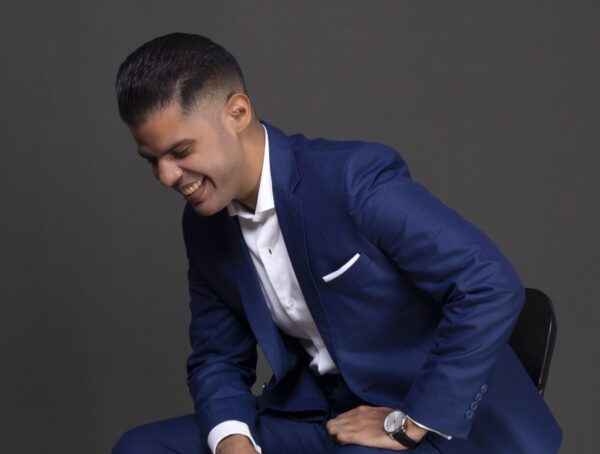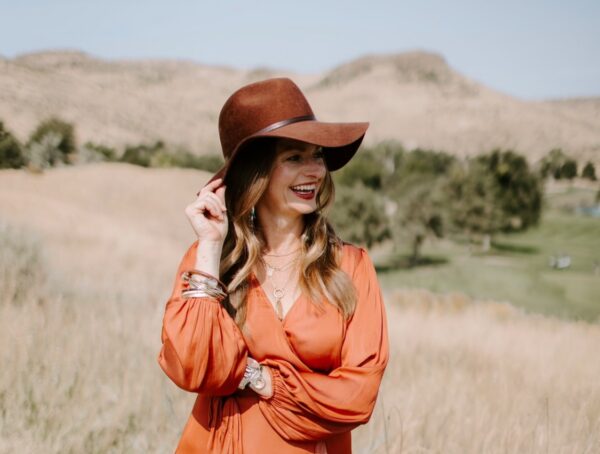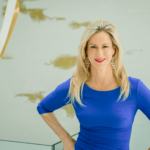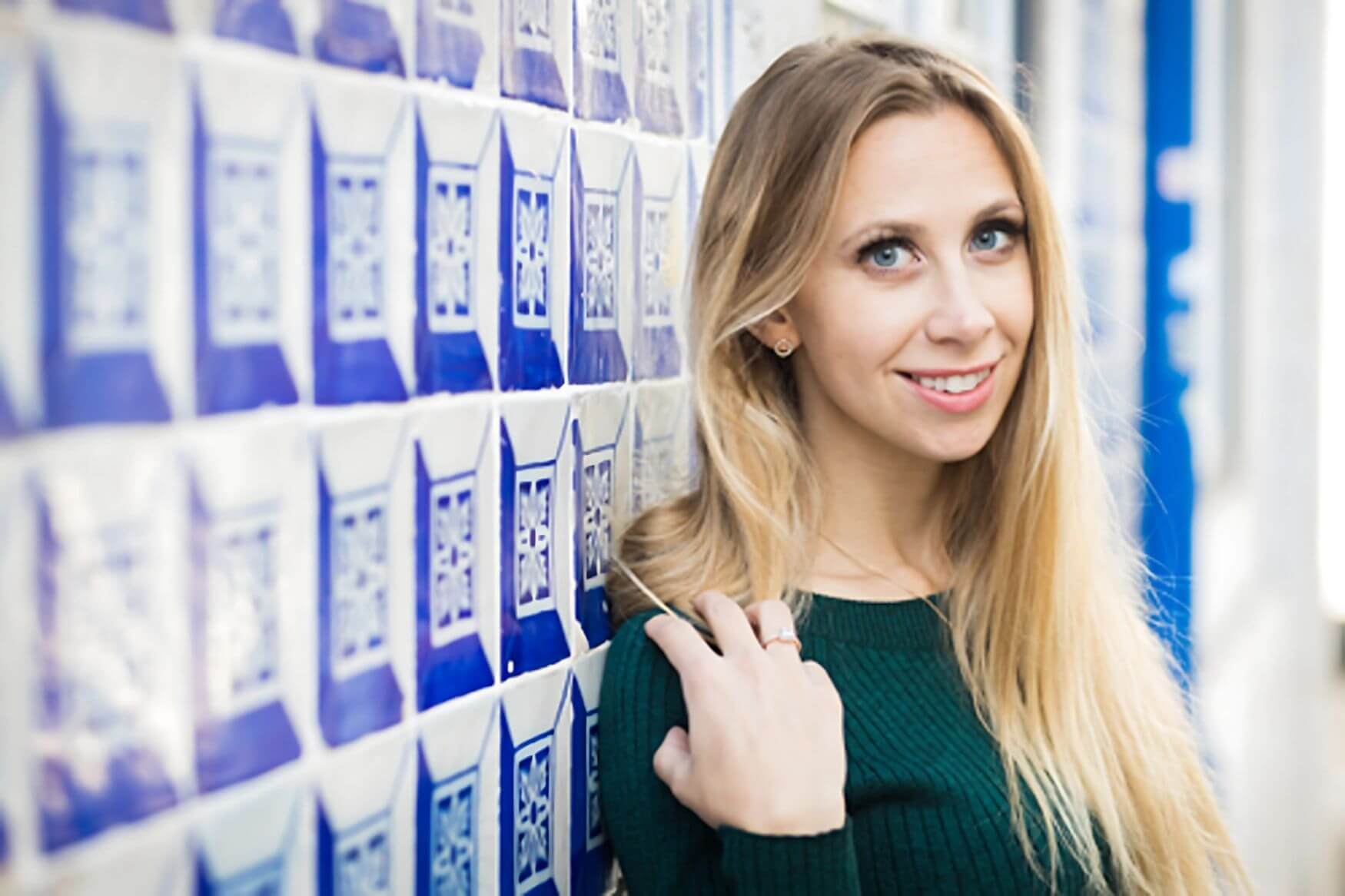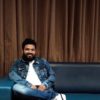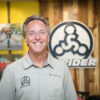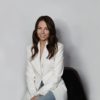Founder@ Interview
Interview with Noah Swartz

“To the person on the fence about giving entrepreneurship a go… Jim Carey once said you can fail at doing something you don’t love, so you might as well try something you do. To me this is a really powerful way of reframing — people are often focused on what happens if they fail and not if they succeed” – Noah Swartz
Today we feature Noah:Swartz, the founder at Erem Desert Inc. We hear their story in their own words, their successes, their challenges and their insights.
Let’s start by getting to know you. Can you please tell us a little bit about you and what you do?
I am the Co-founder and CEO of Erem, a new outdoor performance brand inspired by the desert that seeks to deliver best-in-class outdoor gear that also raises the sustainability bar for the footwear and apparel industry. I started Erem a little over 2 years ago, and in that time our team has made a strong first step towards our long-term goals.
We launched our first collection of hiking boots that deliver premium durability, comfort, and protection and which are also biocircular, which means they are made only from materials and constructions that have a proven path back to nature.
Most performance footwear ends up in a landfill and is made from materials that are unhealthy for the planet; our first collection delivers a performance worthy of the most extreme landscapes on earth, and yet they are also the most sustainable and eco-friendly hiking boots on the market.
Since launching, Erem has also made strong progress towards our goal of planting 1 million cactus pear – a variety of fruiting cactus that has the potential to remove billions of pounds of CO2 from the atmosphere while also conserving billions of gallons of water in our precious rivers and aquifers.
We donate a portion of every sale to our Cactus Pear Program. Before Erem, which I started while I was an MBA student, I worked in the fields of impact investing and mobility technology.
A great introduction and start to this interview. Can you please tell us, how did you start, from what age, and what made you decide to change direction and start?
I grew up in a footwear household. My family’s business was Timberland, my great-grandfather was the one who started it, and my Dad who was the 3rd generation to lead the business, ultimately selling it to the VF Corporation in 2011.
It’s funny what you pick up at the kitchen table – I think I always knew I wanted to go into the outdoor industry, but I detoured in the first part of my career before I ended up there, initially starting my career in the impact investing and mobility technology sectors.
A few years out of college, where I was a literature student, I went back to school to get my MBA – i was 26 or 27 at the time. During the winter break of my first year, my wife and I spent the whole break adventuring out in the desert.
I’ve always been an outdoors person, but it wasn’t until about a decade ago that I started spending time in the desert.
Perhaps because I grew up in a rainy city, Boston, but I completely fell for the desert – the vast expanses, the extreme weather conditions, the vibrancy of colors that will appear in the least expected places, the most brilliantly evolved plants and animals, and the quiet – the chance to truly be in nature and unmoored from so many of the distractions that pull at each of us in the 21st century…
So of course I was going to the desert during my winter break as there was no place I would rather be.
On one particularly grueling day on the trail, the idea for Erem really just crystalized. When we woke up it was below freezing and there was snow on the ground; by mid-afternoon, it was warm and sunny, the snow had all melted, and we were dealing with a serious case of blisters because our gear was just not made for this extreme change in weather combined with the rather extreme terrain.
However at the same time, we were just trying to power through the hike and reach the end, I was also deeply cognizant and aware and mesmerized by the unparalleled beauty of the red rock cathedrals around me.
At that moment, that was kind of it; that was the genesis of Erem – I just had this realization that there wasn’t, but that there should be a brand and products that would obsess about the nexus of ‘extreme performance challenges meets jaw-dropping red rock!’
This feeling hasn’t dissipated, but only grown stronger. So basically that night I started socializing the idea and working on a business plan, and the rest is kind of history.
Thank you for that insight. So can you tell us…What does your business do and where is your company based?
Erem is a new outdoor performance brand inspired by the desert and that seeks to deliver best-in-class outdoor gear that also raises the sustainability bar for the footwear and apparel industry. Our team is fully remote, although we are headquartered in Henderson, Nevada.
While we currently sell 2 hiking boot products, we have a number of performance footwear products coming down the pipeline and launching soon!
What’s the story behind your success? What led to your aha moment? how did you get to where you are now?
In terms of what has led to Erem’s success – although I would say that there is so much I still want the business to achieve – I need to mention 3 people.
The first is my wife. Entrepreneurship is fun, but also very taxing.
It’s energizing, but also demanding with lots of ups and downs. My wife is the person that really encouraged me to give the business a go and is always there for me in terms of support even when the going gets rough; she has been simply instrumental in terms of my professional journey and consequently the business as well.
Next, I’ve got to mention my Dad who is an experienced shoe dog, Erem’s lead investor, and a brilliant strategist. He is constantly pushing our strategy forward and has been my biggest teacher in terms of becoming a better leader.
Finally, I think the key factor behind any of my professional success at Erem has been my colleagues in the business. Anyone that thinks I am being cliche has definitely never been an entrepreneur; who is on your team is definitely the biggest factor of success, with no exceptions.
While we are still a relatively small team, I feel so grateful to call the other 8 people on the Erem team my colleagues and co-owners of the business. The longer I am in the startup world, the more I learn just how true the saying is that ‘it takes a village.’
Thank you for sharing that. What’s been your life’s biggest lesson so far?
Team, team, team, team….and team. If you get the team right, everything else follows!
Also, while it might sound naive, I think another learning lesson for me is that the job of the entrepreneur is largely to solve problems because basically nothing goes as expected or is drawn up on the whiteboard.
We have faced an extremely long list of obstacles and challenges that were totally unforeseen — it took 3 months to prove we could use linen thread instead of nylon which we needed to in order to meet our sustainability goals for the Xerocole collection — I definitely was not expecting this challenge to be so significant.
Now going back to my earlier point, the way we got through this was because we had extremely driven and expert product leads that knew what it took to work with the factory to eventually show that, yes, this could really be done.
From this example I take a few learning lessons:
Assume that things are going to take longer than you first expect
Expect the unexpected and find ways to build that into your forecast
Put the odds in your favor of succeeding, and the best way to do that is by focusing on the 2 points above and having a team in place that is more expert in what you are doing than pretty much anyone else on earth.
While I wish I could say this was an avoidable problem and there was something I would have done instead; it wasn’t and there isn’t.
Sometimes you are just going to be put in difficult positions and it isn’t much you can do except keep just keep going, or in the words of Churchill: “if you are going through hell, keep going.”
When things were looking very dicey and we really didn’t know if this thread was going to work which would have been very consequential for us because we were building and advertising the business in no small part on our ability to achieve this particular environmental standard, we just kept the faith it would eventually turn out okay, it wasn’t always easy, but sure enough, resilience and determination eventually paid off.
One of the things that I love about my job is that I learn so many new things every day. If i knew this stuff ahead of time it’d of course be way easier but it’d also be less enjoyable! So in terms of what I wish i knew — i wish i knew just how much I didn’t know. I would have asked more questions earlier which would have helped every facet of the business. As a leader that is something I am focused on — state less, and ask more. I wish I had known the value of that earlier.
If you were to go back in time, what piece of advice would you give to your younger self?
In terms of advice, I’d tell my younger self to listen real carefully to Billy Joel’s song Vienna. In fact, I tell my current self this all the time – I am a very impatient person and I know a big area for me to work on is truly to “slow down” and remember “you are doing fine and you can’t be everything you want to be before your time.”
The key point is — slow down and smell the roses, be more focused on the here and now, and be a bit less worried about what is coming around the corner. I was impatient to start a business — I should have trusted more that just because it hadn’t happened didn’t mean it never would. I was worried it wouldn’t happen; it did happen — I should have worried less and it’s important to learn from that.
As regards doubters…A prerequisite for being an entrepreneur is having enough conviction that you can keep pushing even when the doubters are at their loudest. I have conviction in Erem; sometimes i feel vulnerable to the doubters, but at the end of the day i believe in the idea and our team and so the doubters just don’t bother me that much because i think they’re wrong.
We’re nearly halfway through our interview so it’s a great time to ask how does your business run. What three tools make your business run better?
The three tools that make our business run better:
Investor reports, because they hold me accountable and make me reflect on each month and how I should be focusing on the team.
OKRs — a professor in business school recommended I adopt them back then when there were just 2 of us on the team; he told me to read John Doerr’s book explaining how to use them. I don’t tend to be a big business book reader, but would definitely recommend this one…If we didn’t have these, I feel like we would be a headless chicken running around without direction.
Toxnot — we are the first outdoor company to partner with them. They make software that helps drive transparency in supply chains. We have extremely ambitious sustainability goals and they help us achieve this; there is no other company that offers a service like this; without them, we’d be flying blind or relying on expensive, manual consultants to help us vet each material to the level that we insist. I am excited for them to continue to build out their suite of services and customers.
What do you know now that you wished you had known before?
One of the things that I love about my job is that I learn so many new things every day. If i knew this stuff ahead of time it’d, of course, be way easier but it’d also be less enjoyable! So in terms of what I wish i knew –, i wish I knew just how much I didn’t know. I would have asked more questions earlier which would have helped every facet of the business. As a leader that is something I am focused on — state less, and asks more. I wish I had known the value of that earlier.
What has been your greatest or proudest achievement or moment?
I am beyond excited every single time that a customer has a good experience with our products. It feels like I win the lottery every time that happens. And while thankfully it hasn’t happened too frequently, there is nothing worse than one customer says that forever reason, your product isn’t for them; I take it personally every single time.
Another proud moment — we got written up in an article that mentioned us as an environmental pioneer alongside some very admired and big brands. That was very cool to see us starting to be treated seriously; it was a little bit of ‘whoa’ this journalist thinks we are that legit…cool!
What future life goals do you want to achieve and why?
I’d like my tombstone to read as follows:
Here lies Noah Swartz. A devoted and loving husband, father, grandfather, and great-grandfather. A man that counted the days of his life carefully, and who left the world a better place than he found it.
There is only so much you can control, and that starts with being the best family man I can be. After that, it’s about how you choose to spend your time, and I believe that I am put on this earth to do my best to make it a better place for others while trying to have an enjoyable experience along the way.
To finish our inspire questions…”We believe that sharing inspiring words can inspire others.” If there was one positive thing you would say to someone to inspire and empower them what would it be and why?
To the person on the fence about giving entrepreneurship a go…I think Jim Carey’s dad nailed this one (I like watching commencement speeches and Jim Carey mentioned this in a speech he gave): you can fail at doing something you don’t love, so you might as well try something you do.
To me this is a really powerful way of reframing — people are often focused on what happens if they fail.
I think that’s a reasonable fear, but oftentimes i think people only look at what they aren’t doing or at new things through that lens. And so for me, I think there is value in looking at all your options and just stating right at the front that failure is absolutely a possibility with all of them.
Having gotten that out of the way, we can focus on what I think is the more important question: which is the one that inspires you and calls you the most?
Ultimately I think this allows people to operate with less fear and less doubt and less uncertainty. And if you can get to that place, you will be a far better founder and leader.
“Thank you it has been great learning more about your founder story and Erem Desert Inc”
To learn more about Erem Desert Inc Visit www.eremlife.com
Inspired by this story? Please share this story and other founder stories.
For more inspiring founders stories check out Founder Stories.
Have an inspiring founder story?
Every entrepreneur’s journey is unique and powerful.
Your story of perseverance and success could be the spark that ignites the next generation of world-changing ideas. By sharing your experiences, you’re not just telling a story – you’re lighting a path for others to follow, dream, and achieve.
Disclaimer:
The views, thoughts, information, and opinions expressed in the text, videos, images belong solely to those of the individuals involved, and do not necessarily represent those of Founderat.com and its corporate owners, employees, organization, committee, or other group or individuals.
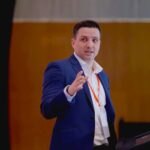
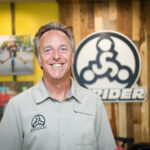



![[Company Name]'s Founder Stories](/wp-content/uploads/2024/10/Fonuder@-Partners-01a-150x150.png)





